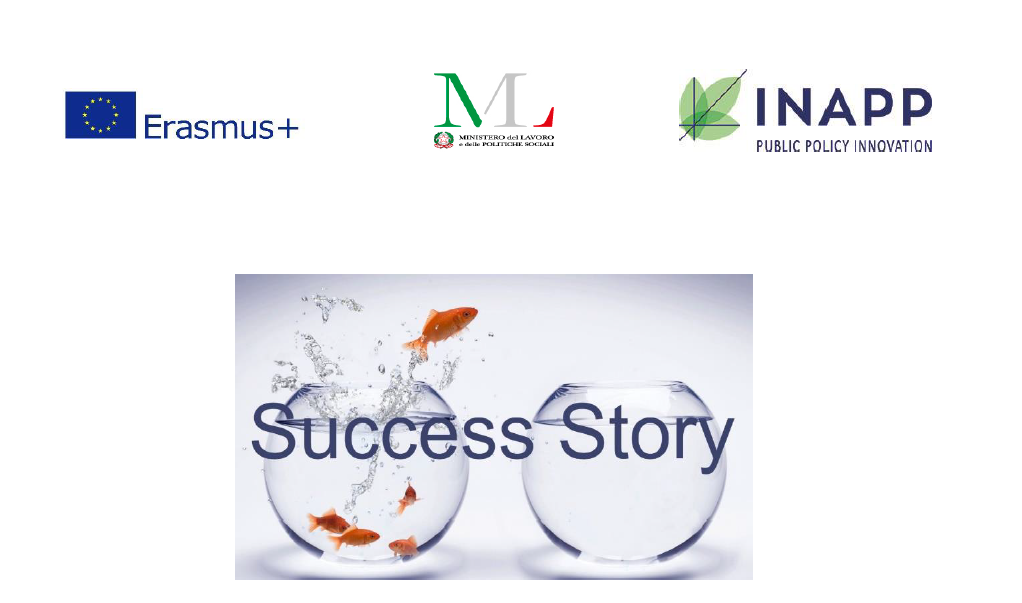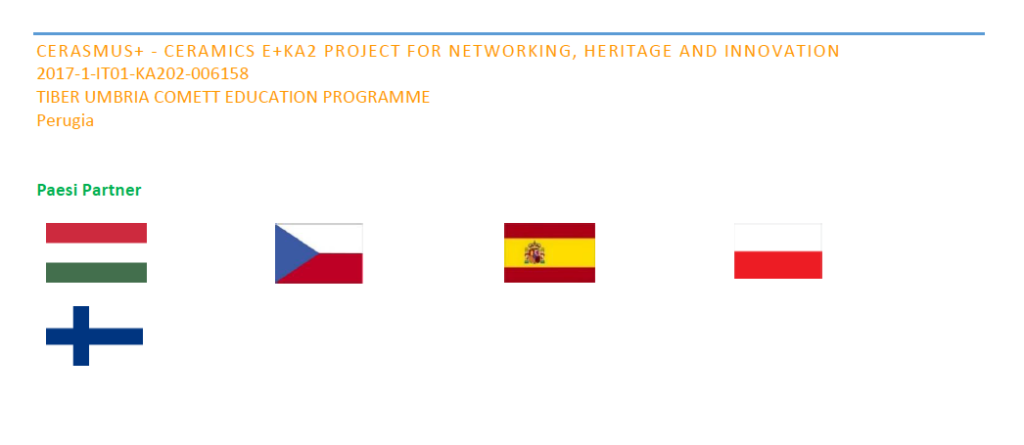Cerasmus+ is a european project co-funded by the program Erasmus+, which was born from the initiative of AEuCC – European Grouping of Territorial Cooperation “Cities of Ceramics” and has started in 2017 with the goals to protect the European traditional heritage, to modernize the ceramic sector and to develop vocational training in ceramic craft industry enhancing work based learning models. Cerasmus+ faces the challenges of global competition, loss of skills, difficulties of getting into the market and lack of financial resources and economic capacity, relying on three pillars: Heritage, Innovation and Network.
Recently, the project was included in the VET Success Story document by INAPP (National Institute for Public Policy Analysis) 2014-2020.

 The project
The project
CERASMUS +, a good practice of Strategic Partnership funded under Erasmus+ in 2017, had the aim of protecting the traditional heritage of the EU and to modernize the ceramic sector through three main objectives:
• create a European network of ceramic stakeholders (VET providers, craft enterprises, public bodies, cultural institutions, centers research) to analyze the skills needs of the sector with reference to the improvement of the “value chain”, the enhancement of the urban environment and the start-up of businesses;
• combine the tradition of ceramics with innovative design and production techniques;
• review and innovate professional training in the ceramic sector through work based learning models in order to strengthen the value of the sector on a cultural, social and economic level.
The project outputs consist of:
• a field analysis to explore the skills needs to ensure the development of the sector through the networking, protection of intangible assets and innovation. Field analysis was conducted by realizing interviews and questionnaires with key players in ceramics;
• the design and implementation of an on-line virtual environment aimed at the main players and stakeholders of the ceramics to discuss the main issues that emerged from the evaluation phase and to open a permanent forum to ensure closer cooperation;
• the design and testing of specific curricula for initial and continuing professional training,
focused on work based learning, aimed at the acquisition of transversal and professional skills for improvement of the sector’s “value chain”.